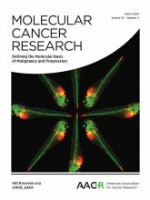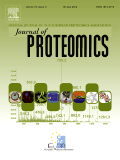
Clinical Proteomics
Scope & Guideline
Advancing Proteomics for a Healthier Tomorrow
Introduction
Aims and Scopes
- Clinical Applications of Proteomics:
The journal focuses on the application of proteomic technologies to discover and validate biomarkers for disease diagnosis, prognosis, and therapeutic monitoring across a variety of conditions, including cancer, cardiovascular diseases, and autoimmune disorders. - Innovative Methodologies:
It emphasizes the development and application of innovative proteomic methodologies, such as mass spectrometry and data-independent acquisition techniques, which enhance the sensitivity and specificity of protein analysis in clinical samples. - Interdisciplinary Research:
The journal encourages interdisciplinary research that combines proteomics with other omics technologies (genomics, transcriptomics, and metabolomics) to provide a comprehensive understanding of disease biology and facilitate personalized medicine. - Biomarker Discovery and Validation:
A significant focus is on the discovery and validation of novel protein biomarkers that can aid in the early detection of diseases, monitor disease progression, and predict treatment responses. - Patient-Centric Studies:
Clinical Proteomics often publishes studies that directly involve patient samples, reflecting real-world clinical scenarios to ensure that findings are applicable and beneficial to patient care.
Trending and Emerging
- Proteomics in Cancer Research:
There is a notable trend in the application of proteomics to cancer research, particularly in understanding tumor heterogeneity, resistance mechanisms, and the identification of novel biomarkers for early detection and targeted therapy. - Integration of Multi-Omics Approaches:
Emerging studies are increasingly integrating proteomics with genomics and metabolomics, allowing for a more comprehensive understanding of biological systems and disease mechanisms, enhancing predictive modeling and personalized medicine. - Machine Learning and Bioinformatics in Proteomics:
The utilization of machine learning and advanced bioinformatics tools to analyze complex proteomic datasets is growing, enabling researchers to uncover patterns that can lead to new insights in disease pathology and treatment responses. - Non-Invasive Biomarker Discovery:
There is a heightened focus on non-invasive proteomic biomarkers derived from bodily fluids (e.g., saliva, urine), which are crucial for developing diagnostic tools that are easier to implement in clinical settings. - COVID-19 Related Proteomics:
The ongoing research related to COVID-19 has led to a surge in publications that explore the proteomic landscape of the virus and its effects on the human body, highlighting the importance of proteomics in understanding infectious diseases.
Declining or Waning
- Basic Research without Clinical Relevance:
Research focusing solely on basic proteomic techniques without direct application to clinical issues has decreased, as there is a growing preference for studies that link proteomics directly to clinical outcomes. - Single Omics Studies:
There has been a decline in publications that focus exclusively on proteomics without integrating other omics approaches, as the trend shifts towards more holistic, multi-omics strategies that provide a more comprehensive view of disease. - Traditional Biomarker Approaches:
The reliance on traditional biomarker discovery approaches, which often do not incorporate advanced proteomic technologies, has waned in favor of more innovative and sophisticated methodologies that offer greater sensitivity and specificity. - Non-Quantitative Proteomics Studies:
The frequency of studies employing qualitative proteomic analyses has decreased, as the field increasingly values quantitative approaches that provide measurable and reproducible results.
Similar Journals

Biomarkers in Medicine
Pioneering Research for a Healthier TomorrowBiomarkers in Medicine is a prominent academic journal dedicated to advancing the field of medical biochemistry and drug discovery. Published by Future Medicine Ltd in the United Kingdom, this journal aims to provide a platform for researchers, clinicians, and biotechnology professionals to share their findings on the critical role of biomarkers in diagnosis, treatment, and prognosis of various diseases. With a focus on high-quality, peer-reviewed research, Biomarkers in Medicine supports the dissemination of innovative approaches and therapeutic developments across its converged publication years from 2008 to 2024. Rated in the Q3 category for biochemistry (medical), clinical biochemistry, and drug discovery, it occupies a significant place in its field, attracting contributions that push the boundaries of knowledge and application. Although it does not offer open access, the journal remains committed to excellence and rigor in the representation of ground-breaking studies, making it an essential resource for scholars and professionals eager to stay at the forefront of biomarker research.

MOLECULAR CANCER RESEARCH
Innovating Cancer Research for Tomorrow's TherapiesMOLECULAR CANCER RESEARCH, published by the American Association for Cancer Research, stands as a pivotal journal in the fields of cancer research, molecular biology, and oncology. With an impressive impact factor and recognized as a Q1 journal in its respective categories for 2023, it serves as an essential resource for researchers, professionals, and students aimed at advancing our understanding of cancer mechanisms and therapies. The journal, identified by the ISSN 1541-7786 and E-ISSN 1557-3125, provides a platform for cutting-edge research and clinical applications, emphasizing innovation and collaboration within the scientific community. With its focus on high-quality, peer-reviewed articles, MOLECULAR CANCER RESEARCH is vital for anyone looking to stay abreast of significant advancements in cancer biology and treatment strategies. For more details and to access the journal's content, please visit the publisher's link.

Genome Medicine
Elevating Knowledge in Genetics and TherapyGenome Medicine is a prestigious, peer-reviewed journal published by BMC, focusing on the rapidly evolving fields of genetics, molecular biology, and molecular medicine. Established in 2009 and boasting an open-access format, it has become a leading platform for disseminating high-quality research findings that advance our understanding of genetic diseases and therapeutic innovations. With an impressive Q1 ranking across multiple relevant categories—in particular, genetics (clinical), molecular biology, and molecular medicine—this journal is recognized for its substantial impact in the academic community, as evidenced by its exceptional placement in Scopus rankings. By providing unrestricted access to groundbreaking studies, Genome Medicine fosters collaboration and knowledge sharing among researchers, clinicians, and educators, thus playing a vital role in the transition from fundamental genetic research to clinical applications. Researchers are encouraged to contribute their findings and insights, further solidifying the journal’s position as a pivotal resource for those dedicated to advancing genomic medicine.

Proteomes
Advancing Knowledge in Biochemistry and Beyond.Proteomes, published by MDPI since 2013, is a notable open access journal that occupies a critical place in the realms of Biochemistry, Clinical Biochemistry, Molecular Biology, and Structural Biology. Based in Switzerland, this journal not only promotes the dissemination of high-quality research pertaining to protein structures and functions but also emphasizes interdisciplinary approaches that bridge various fields of biomedical science. With a Category Quartile ranking of Q2 across multiple pertinent categories in 2023, Proteomes boasts a competitive impact within the scientific community, evidenced by its robust Scopus rankings. Researchers, professionals, and students are invited to explore a wealth of pioneering studies and reviews that are made freely accessible, aligning with global trends in open scientific communication. Whether contributing original research or seeking to expand their knowledge, the journal serves as an invaluable resource for anyone engaged in the evolving landscape of proteomics.

Biomarker Insights
Transforming health insights through groundbreaking research.Biomarker Insights, published by SAGE Publications Ltd, is a leading open-access journal dedicated to advancing the field of biomarker research and its applications in health and disease. With an ISSN of 1177-2719 and an E-ISSN of 1177-2719, this journal has been at the forefront of disseminating high-quality scientific findings since its inception in 2006. Based in New Zealand, it has achieved a notable impact within the academic community, ranking in Q2 for Biochemistry (medical) and Molecular Medicine, and Q1 in Pharmacology as of 2023. This positions Biomarker Insights as a critical resource for researchers, professionals, and students alike, looking to explore innovative methodologies and applications in biomarker discovery and validation. With a commitment to open access, the journal ensures that groundbreaking research is readily available to the global community, fostering collaboration and innovation in the ever-evolving field of biomedical sciences.

Translational Cancer Research
Advancing oncology through groundbreaking research.Translational Cancer Research, published by AME Publishing Company in Hong Kong, is a pivotal journal aimed at fostering the advancement of oncology-related knowledge through the dissemination of high-quality research findings. With its ISSN 2218-676X and E-ISSN 2219-6803, this journal serves as a vital resource for researchers, professionals, and students in the fields of Cancer Research, Oncology, and Radiology, Nuclear Medicine, and Imaging. Established in 2012, the journal covers the latest breakthroughs and cross-disciplinary approaches that drive innovation in cancer treatment and diagnostics. Although currently classified in the Q4 Quartile for Cancer Research and Q3 for both Oncology and Radiology, Translational Cancer Research continuously works toward improving its academic influence and impact, evidenced by its ongoing research contributions. The journal emphasizes open access, making crucial research available to a global audience. We invite scholars and industry professionals to engage with the latest findings and discussions within these critical areas of medical science.

Expert Review of Proteomics
Elevating Proteomic Research to New Heights.Expert Review of Proteomics, published by TAYLOR & FRANCIS LTD, is a distinguished journal that focuses on the latest advancements in the field of proteomics, a critical area within biochemistry and molecular biology. With an ISSN of 1478-9450 and E-ISSN 1744-8387, this journal has been pivotal in disseminating high-quality research from its inception in 2004 to its planned convergence in 2024. Its influential position is reflected in its 2023 rankings, placing it in the Q2 category for both Biochemistry and Molecular Biology, alongside respectable Scopus rankings that rank it 118th and 141st in its respective categories. Despite its non-open access structure, Expert Review of Proteomics provides researchers and professionals with a vital platform for critical reviews and insights into proteomic methodologies, thus contributing significantly to the global scientific community. By bridging theoretical research with practical applications, it serves as an essential resource for those dedicated to advancing their knowledge and expertise in this dynamic field.

Journal of Proteomics
Innovating methodologies for groundbreaking discoveries.Journal of Proteomics, published by Elsevier, is an esteemed peer-reviewed journal dedicated to advancing research in the field of proteomics, with broad implications for biochemistry and biophysics. Established in 2008, the journal has continuously evolved, embracing innovative methodologies and technologies that facilitate protein analysis from a variety of biological systems. With its current standing in the Q2 category for both biochemistry and biophysics as of 2023, it is recognized as a significant contributor to scientific literature. The journal publishes original research articles, reviews, and methodological advancements, providing invaluable insights for researchers, professionals, and students alike. Although it does not offer open access, the journal remains a crucial platform for disseminating knowledge that informs various applications, ranging from drug development to disease understanding. As it converges towards 2024, the Journal of Proteomics continues to solidify its role in shaping the future of proteomic research through rigorous scientific inquiry and innovation.

PROTEOMICS
Pioneering discoveries in protein function and interaction.PROTEOMICS is a leading journal focused on the rapidly evolving field of proteomics, published by WILEY in Germany. With a solid reputation established since its inception in 2001, it has continually contributed to the understanding of protein functions and interactions within biological systems. As part of its commitment to academic excellence, PROTEOMICS is ranked in the second quartile for both Biochemistry and Molecular Biology categories (2023), reflecting its significant influence in advancing research in these areas. Although it does not currently provide open access options, it remains a vital resource for researchers, professionals, and students keen to explore innovative methodologies and findings in proteomic research. By publishing groundbreaking studies that bridge theoretical knowledge with practical applications, PROTEOMICS plays a crucial role in enhancing our understanding of molecular processes and driving forward advancements in the life sciences.

Metabolomics
Advancing the Science of MetabolismMetabolomics is a distinguished academic journal published by SPRINGER, dedicated to advancing the field of metabolomics and its applications in various biochemistry-related domains. With a focus on innovative research in biochemistry, clinical biochemistry, and endocrinology, diabetes, and metabolism, this journal holds a significant position, being categorized in the Q2 quartile across multiple fields in the 2023 rankings. The journal is indexed with notable metrics: ranking 73rd in Endocrinology, Diabetes and Metabolism and 38th in Clinical Biochemistry on Scopus, demonstrating its impactful contribution to the scientific community. Established in 2005, Metabolomics provides a vital platform for researchers, professionals, and students to access high-quality research, facilitating advancements in our understanding of metabolic processes and their implications in health and disease. Access options include subscription-based reading, ensuring that valuable insights are available to a broad audience across the globe.